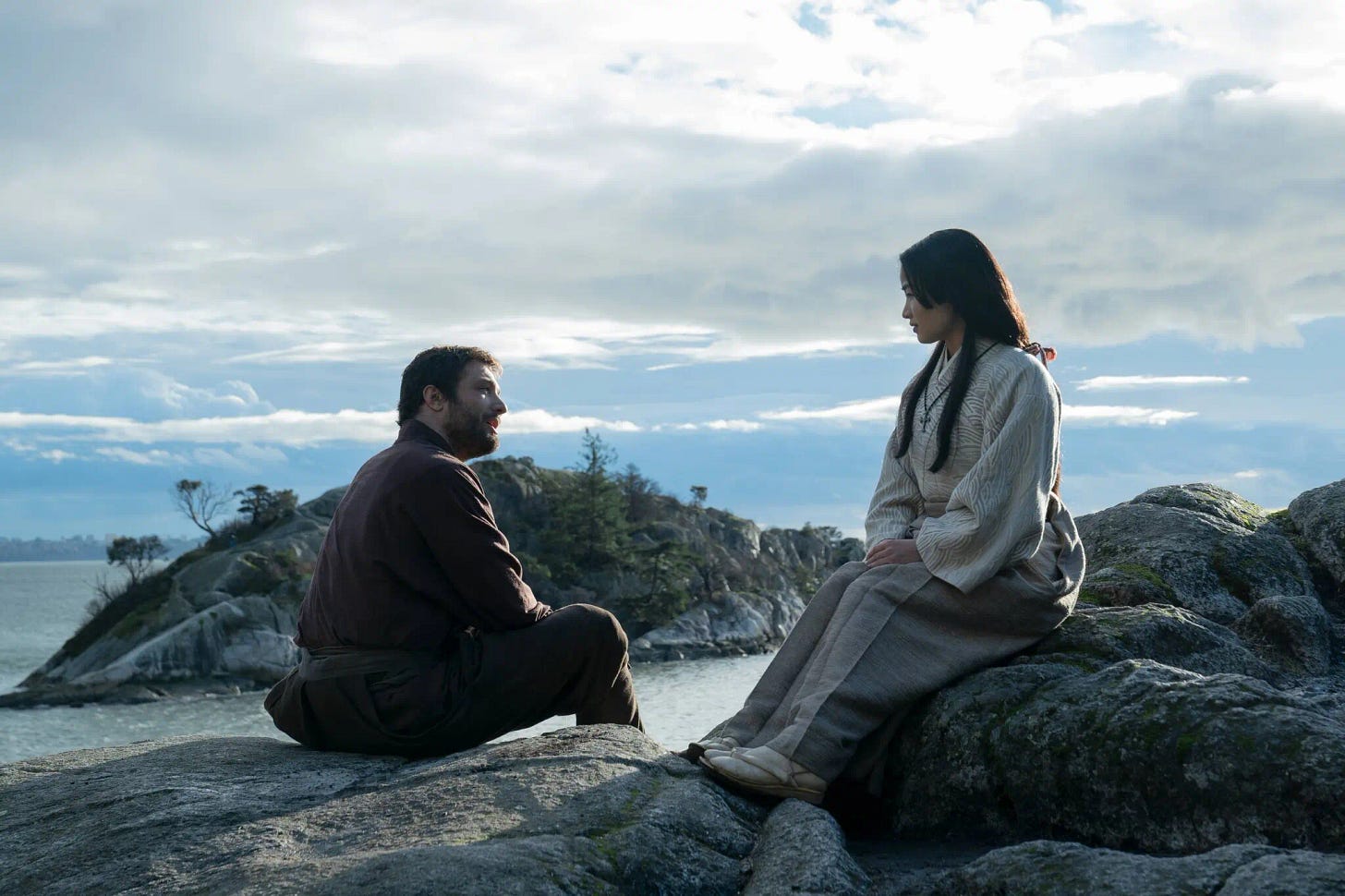The Power of Quiet Storytelling
The Popularity of Shogun and The Bear Demonstrates How Audiences Crave Emotional Breadth
Discussed: Shogun, The Bear, storytelling, quiet episodes, emotion, empathy, how we watch, how we live
At first glance, Shogun is prestige TV at its most expansive. Each episode captivates with awe-inspiring landscapes, impressive battle scenes, and an exciting and multi-layered plot that asks huge questions about war, revenge, and love. The series, which has now been expanded beyond its initial limited run, is richly plotted and filled with action and adventure.
And yet, it’s the show’s embrace of the subtle that captures its emotional richness, especially in the gentle unfolding of friendship and romance between the Anjin and Lady Mariko.
One scene that encapsulates this slow-building storytelling occurs in Episode 6, “Ladies of the Willow World,” when the Anjin and Mariko are instructed to attend a tea ceremony with a courtesan, who quickly gleans that there is more to their relationship than words. After pouring sake for the Anjin, the courtesan moves behind Mariko, so that it seems as though the translation of her words are being expressed by Mariko herself. “Settle your eyes on what you desire,” Mariko translates, and we watch as the Anjin watches her and how her own breath trembles as she relays her own unspoken desires.
It’s an exquisite scene, which captivates precisely because it allows us a glimpse at the interior world of its characters. And while the stereotype is that today’s TV viewer is mainly interested in escape, Shogun demonstrates the opposite. That viewers today are hungry for emotional authenticity and are also willing to work for it. Rather than provide “ambient viewing” that can be experienced while scrolling on a phone or making dinner, Shogun’s sumptuous storytelling is outright demanding. To fully understand the narrative, you need to pay close attention to every single visual moment and also be fully attuned to the translation choices that Mariko makes.
This slower pace and emphasis on ordinary moments could be considered risky in an age of streaming. We’re so overwhelmed by viewing options that if something doesn’t immediately capture our interest, we may not watch at all. And if a story slows down, even for a moment, there is a threat that we might get distracted and look the other way. And yet, there is ample evidence that a slow and steady pace of viewing is one that many viewers actually look forward to. Many of the most successful series now dole out smaller batches of individual episodes for fans to savor or even embrace a one-episode-a-week format, rather than dropping an entire season all at once.
Nowhere is the desire for the quiet story more evident than in Season 2 of The Bear, a show which is known for being exceptionally loud, but which undergoes a shocking and captivating tone shift in Episode 4. In “Honeydew,” Marcus journeys away from the cacophony of the kitchen in Chicago to the near empty streets of Copenhagen where his job is to refine his dessert making skills. Throughout the episode, we watch as Marcus leaves his mother in the caring hands of her nurse, and, for the first time in a long time, focus entirely on his own development as a chef. The time he spends is quiet and disciplined. We watch him whisk, mix, and create perfect and precise spoons of dessert. He leaves messages for his mom. When he isn’t cooking, he walks around Copenhagen, sleeps in a little houseboat, and leaves food out for a cat he never sees.
The slower pace doesn’t mean that things don’t happen. The episode works precisely because it gently pushes the story forward and also offers a momentary respite from the clamorous world of the kitchen we’re so familiar with. It’s also extraordinarily well-paced, allowing us access to greater character depth without sacrificing narrative movement.
Both Shogun and The Bear demonstrate how choosing to linger in quieter moments can provide a show with a richer texture, and also forge more genuine connections with viewers. The quiet story attunes us to the inner lives of characters we watch, trusting us to view them with empathy. The TV shows that do it best move us precisely because they echo the shape of our own lives and the way our most impactful moments emerge when we are paying close attention. “This matters,” the quiet story whispers, “Experience this moment and let everything else fade away.”






